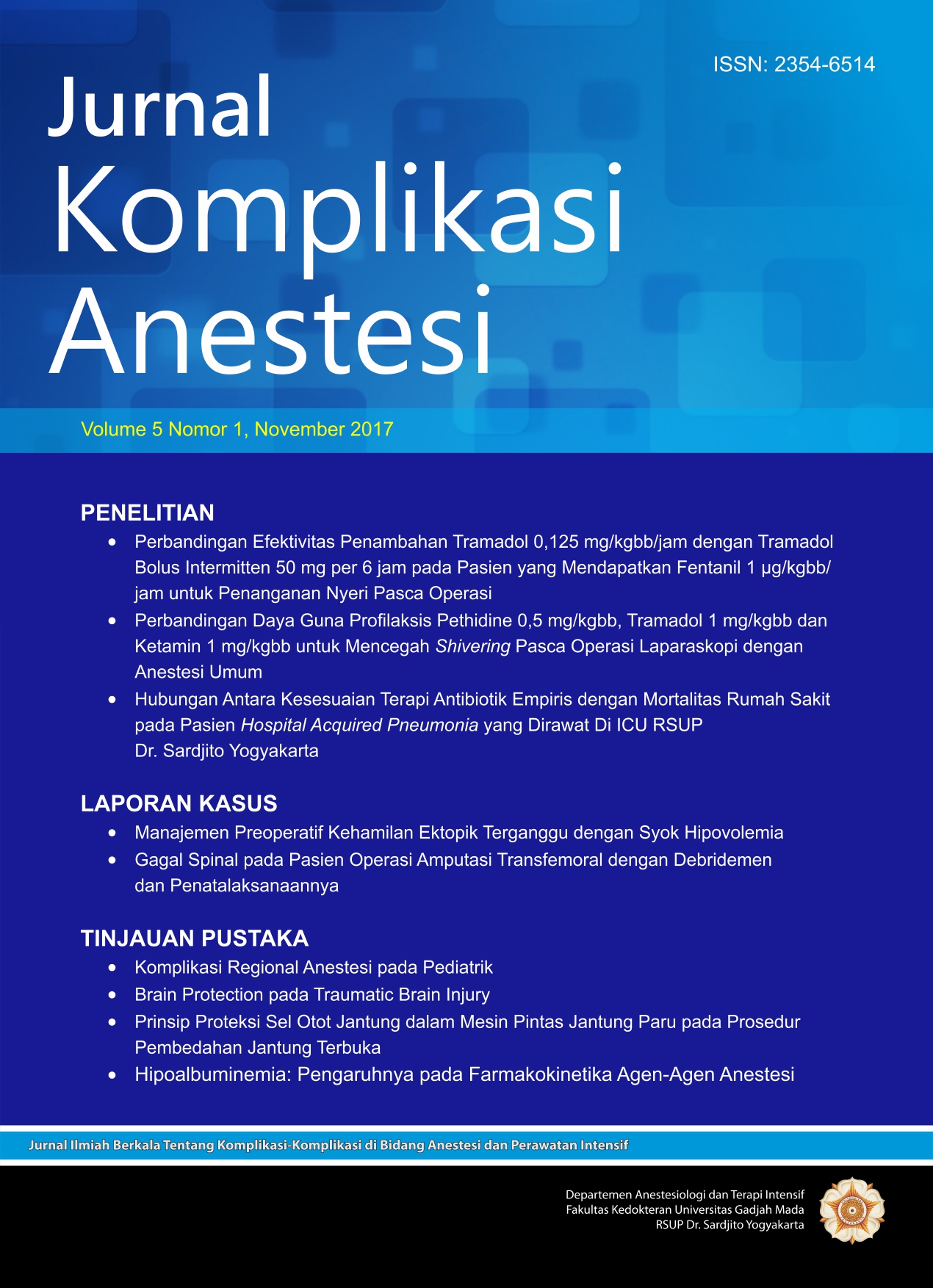Hubungan antara Kesesuaian Terapi Antibiotik Empiris dengan Mortalitas Rumah Sakit pada Pasien Hospital Acquired Pneumonia yang Dirawat Di ICU RSUP Dr. Sardjito Yogyakarta
Abstract
Objective: To determine the association between appropriateness of empirical antibiotic therapy and hospital mortality in patients with hospital acquired pneumonia (HAP) admitted to ICU.
Design: Retrospective cohort observational study
Methods: Data were collected from patient’s medical record. The inclusion criteria were ICU’s patients aged 18 years old or older who diagnosed HAP within period of June 1, 2015 to December 31, 2016. Patients with HIV-positive were excluded and those without culture result were dropped out. The empiric antibiotic therapy was considered appropriate when all significant bacteria were susceptible or intermediate to at least one of the antibiotics. Variables determined were association between mortality and appropriateness of empirical antibiotic therapy, age, gender, ICU length of stay, duration of mechanical ventilation (MV), type of case (surgical or medical), and APACHE II scores (within the first 24 hours after ICU admission).
Results: Eighty one patients were enrolled. Three patients were excluded and 9 patients were dropped because no bacterial cultures were reported. Sputum cultures were obtained from 59 patients while blood cultures were drawn from 10 patients. The sputum cultures were positive in 44 patients and negative in 15 patients, while all blood culture were negative. No differences in hospital mortality were related to age (p=0,345), gender (p=1,000), length of stay in ICU (p=0,059), duration on MV (p=0,09), type of case (p=0,199), and APACHE II score (p=0,331). No significant association was found between appropriateness of empirical antibiotic therapy and hospital mortality (p=1,000). The most common prescribed empiric antibiotics were ceftazidime (n=30), ciprofloxacin (n=21, and levofloxacin (n=19). The most common bacteria were Acinetobacter baumannii (n=13), Klebsiella pneumoniae (n=9), Pseudomonas aeruginosa (n=7), and Streptococcus viridans (n=7), which most of them were multi drug resistant (MDR).
Conclusion: No association was found between appropriateness of empirical antibiotic therapy with hospital mortality in patients with hospital acquired pneumonia (HAP) admitted to ICU.

Copyright (c) 2017 Rusdi Anwar Nasution, Calcarina Fitriani Retno Wisudarti, Sudadi

This work is licensed under a Creative Commons Attribution-NonCommercial-ShareAlike 4.0 International License.
The Contributor and the company/institution agree that all copies of the Final Published
Version or any part thereof distributed or posted by them in print or electronic format as permitted herein will include the notice of copyright as stipulated in the Journal and a full citation to the Journal.
















